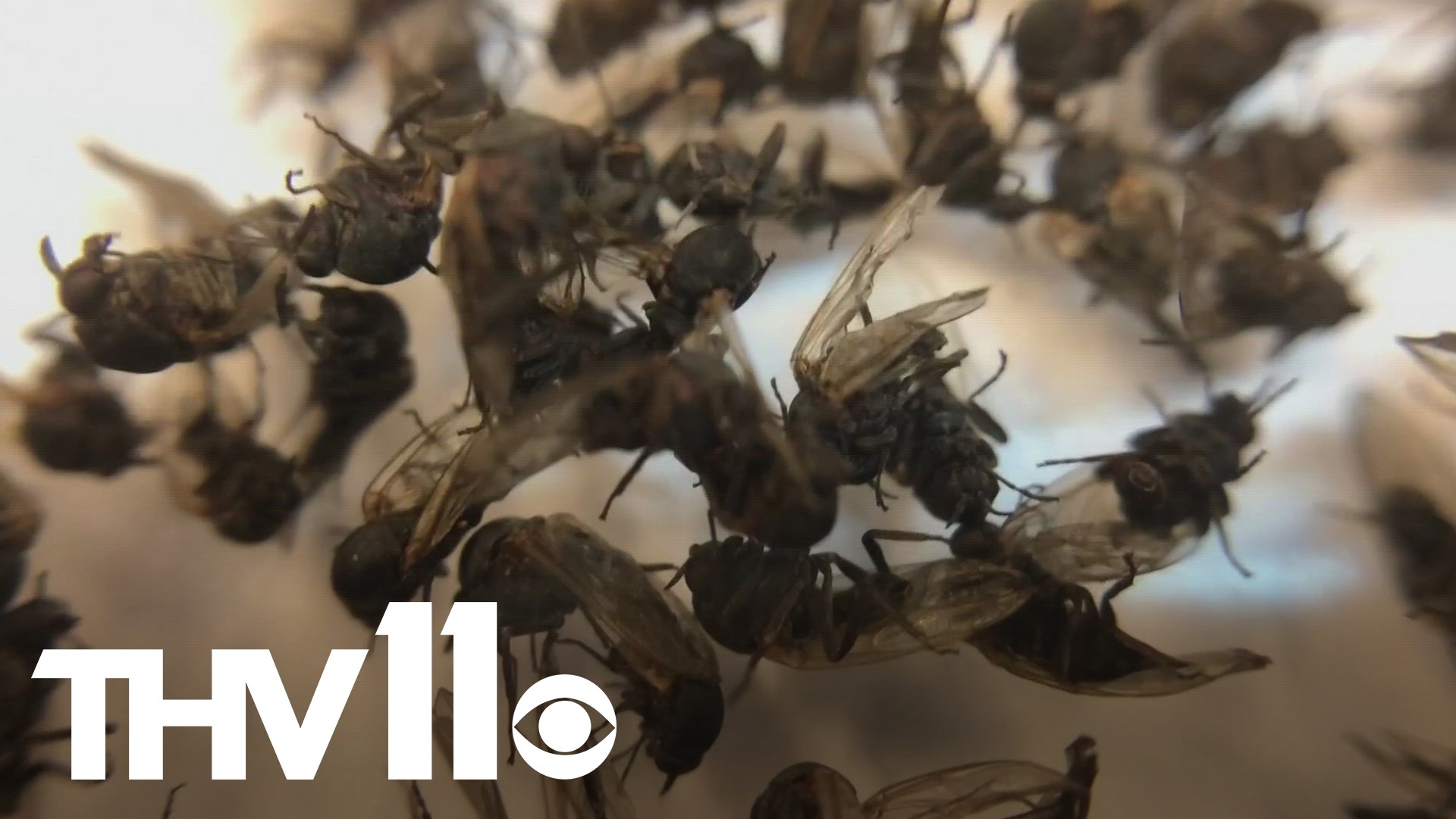LITTLE ROCK, Ark. — Arkansas is known as the Natural State for a reason.
And unfortunately, some things aren't so lovely this time of year— insects, specifically buffalo gnats or black flies.
"They're a pain," Randy Zellers with Arkansas Game & Fish Commission said. "They're a nuisance; there's no way around that."
Zeller said a bite from a buffalo gnat is more significant than a mosquito.
"When they bite, it's not the same mechanics as what a mosquito has," Zellers said. "When they bite, they make a little bit bigger mark."
Springtime has arrived in Arkansas, which means more buffalo gnats. Zellers said it's easier to find them near moving bodies of water.
"So your places, or areas like Stuttgart, they're gonna see a lot of it, Casscoe, those areas around the White River," Zellers said. "They're gonna see a lot more issues with buffalo gnats."
Moving water presents another issue— you can't just treat the water. Jon Zawislak, an assistant professor of Urban Entomology at the University of Arkansas Extensions Division of Agriculture, said it's near impossible.
"Unlike mosquitos that like still water... it makes it difficult to treat a body of water with an insecticide," Zawislak said. "It's just going to wash away."
Buffalo gnats don't just target people. They also go after livestock.
"It's something that farmers are going to have to deal with," Zawislak said. "Probably a bigger threat to poultry than to larger livestock."
The experts said Arkansas wouldn't see anything near as bad as a few years ago, but there are a few things to do to prevent the swarm.
Zellers recommended bug spray and a fan to keep them away. He said it's not much, but it can help.
"But there isn't a whole lot that can be done other than hoping for the weather to improve," Zellers said. "We can't go out on a population-wide basis and burn haystacks or straw or is putting any kind of insecticides in the water or anything like that."

